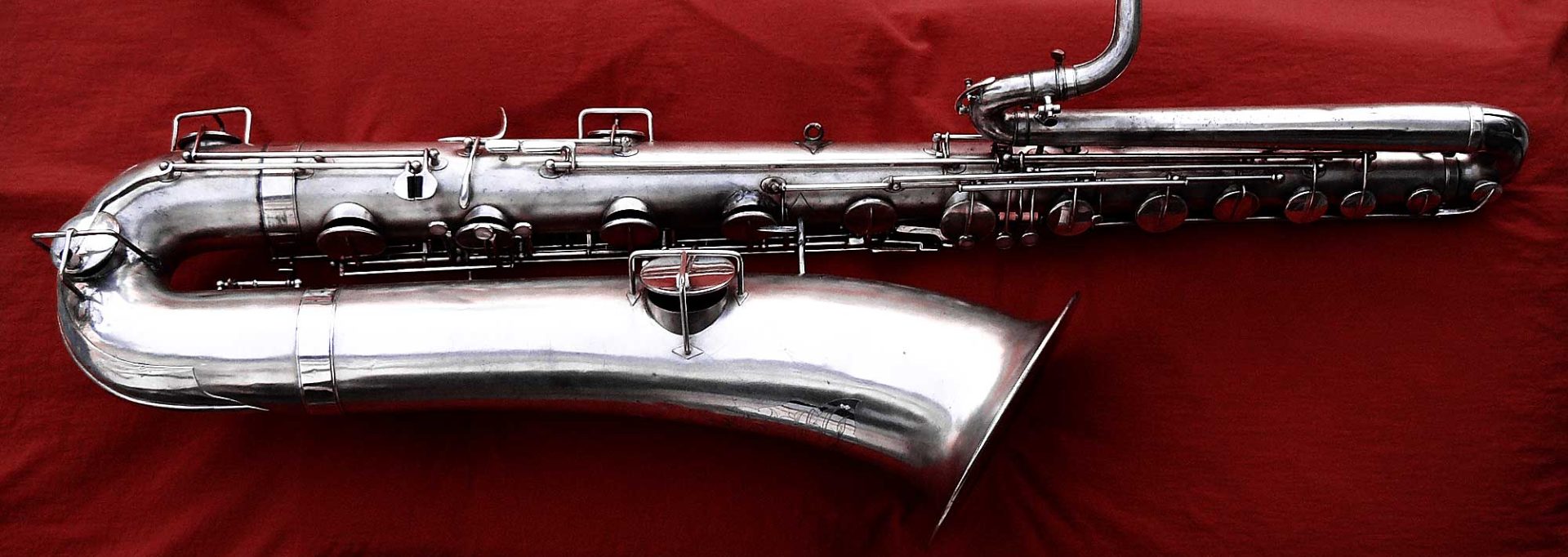I think we can all agree that nothing’s more frustrating than having problems with our saxophones. Improperly functioning gear is a common reason for a player developing bad habits, as one has to compensate for the saxophone’s issue(s).
I can’t quite fathom why some intermediate or returning players allow themselves to be held back by their gear. I personally know a number of people who have returned to playing saxophone after taking a 20 or more year hiatus, who have discovered that not only do they like playing saxophone, they also like tinkering with their horns.
All this tinkering comes with a price however. Lacking the experience and training they would have received from either taking a band instrument repair program, or apprenticing with an established tech, these players are nonetheless working on their own horns, and in some cases doing major repairs or overhauls.
[perfectpullquote align=”left” bordertop=”false” cite=”” link=”” color=”” class=”” size=””]It is having to compensate for your horn’s issues that doesn’t allow you to progress as a player, and what holds you back.[/perfectpullquote]
If I play someone else’s horn and I can’t hit the palm key notes, or jump between octaves because of mechanical issues, the horn has a problem. I personally find these mechanical issues frustrating and limiting. These are just a couple of the issues I’ve found on instruments that have been set up by players doubling as amateur repair techs, and who have tinkered with their own horns.
When I hear these people play, I realize that they are being held back by their own handiwork on the instruments. I want to scream at them: TAKE YOUR HORN TO A REAL TECH! I can’t do that of course, but it sure is tempting.
While I understand the need or desire to work on your horn yourself, the thing one has to keep in mind is that a saxophone is a fine piece of machinery. Its 200+ parts all have to work together in optimal fashion for the instrument to perform at its peak efficiency.
Watching YouTube videos on sax repair, reading threads on SOTW, even taking online courses offered by reputable shops, isn’t going to teach you how to fix your horn like a pro.
In a sea of information overload, how do you decide who to listen to? Furthermore, getting help online doesn’t allow for any assistance while you’re doing the work.
I have a confession to make: I’m the kind of player who will play through a lot, but when things get so bad with my horns that I can no longer play them well, I take them to my tech, David. He trained for 4 years and has a degree in woodwind instrument manufacturing, after which he did his apprenticeship. (David trained in Europe.)
David has worked for some of the biggest names in Europe including Buffet, Leblanc, Boosey and Hawkes, as well as some big repair shops in Paris and Geneva. Given all his training and experience, you’d think his prices would be out of this world, right? Wrong. He’s very fair, which is why Vancouver pros use him all the time.
While not all players are going to have access to a tech with this level of training and expertise, there are often very good techs around. To find out who’s good in town, talk to the pros. They know.
And yes,while it might be fun to tinker around on your horn, realize that if you are a DIY’er, and fix your own horn, most likely it won’t be working exactly the way it was designed to. The smallest of things can make a big difference between a sax that plays well, and a sax you have to compensate for. It is having to compensate for your horn’s issues that doesn’t allow you to progress as a player, and what holds you back.
If you do fix your own horn, spend a few dollars at the end and have a tech do the final set-up. That’s where those small things get tweaked, and you’ll most likely find a big difference in the way your horn plays.





As an advice for people who still want to tinker with there own instruments.
Buy a cheap damaged instrument on ebay and try to fix it.
But do not tinker with the instrument you need to make music.
Yup, that sounds like a very sensible thing to do Theo.
Get a cheap instrument and take it apart and rebuild it over and over again until you know what you’re doing. A student model sax serves well for that purpose. Or even a cheap, vintage, horn that has no value like a Holton—sorry all you Holton lovers out there—or a pro horn that was badly damaged, therefore that can be picked up for next to nothing.
Helen I like the bold Holton statement.
:beat:
With an exception for the Couturier Holtons. As there design rambles along paths simular to that of the Martin.